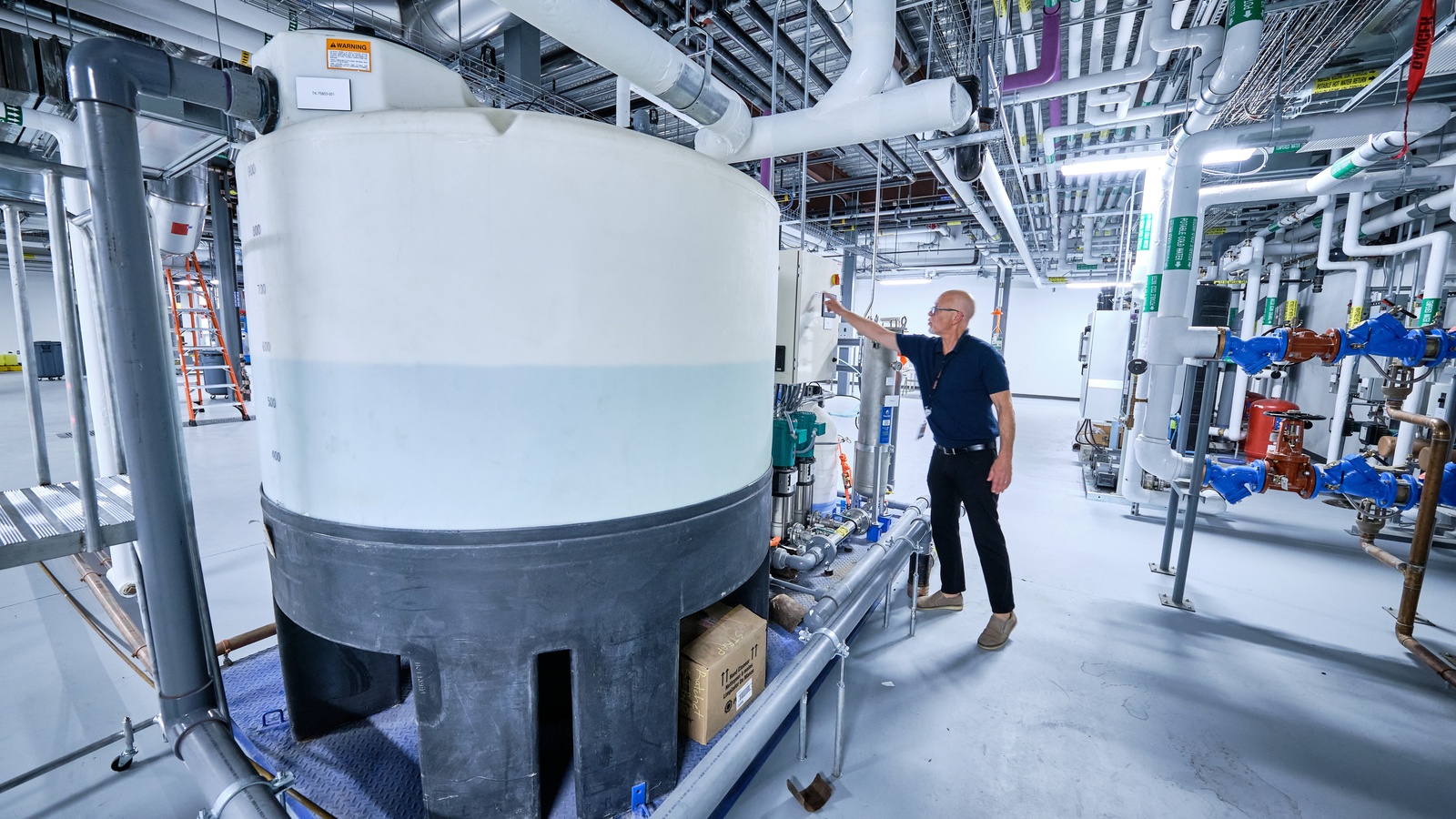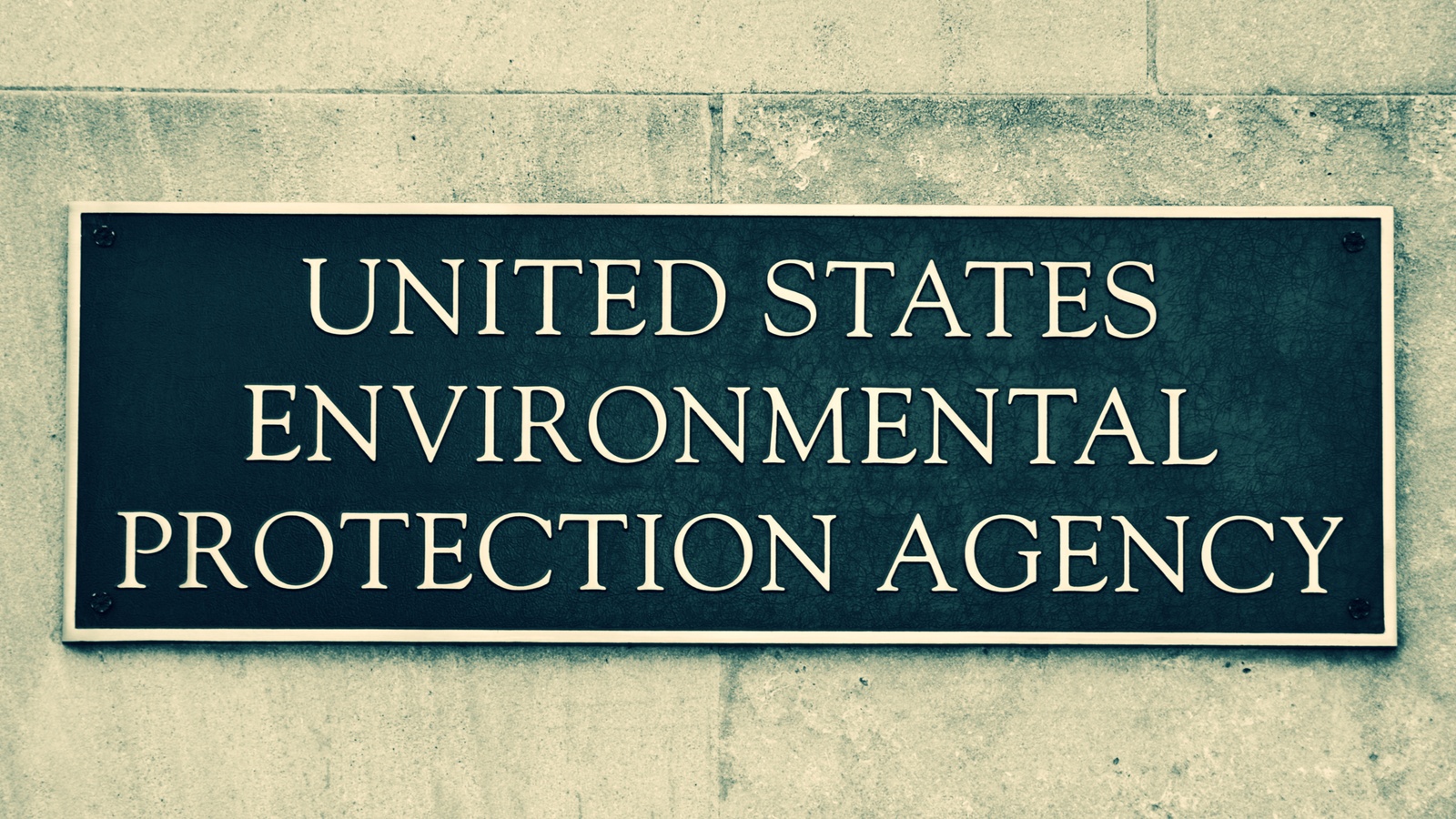Manufacturers: Lowering Particulate Matter Standard Would Harm Infrastructure Investment
Washington, D.C. – Following a request from White House Environmental Justice Advisory Council Chair Brenda Mallory asking the Environmental Protection Agency to lower the annual primary standard for particulate matter (PM2.5) to 8.0 μg/m3 and to lower the primary 24-hour standard to 25.0 μg/m3, National Association of Manufacturers Vice President of Domestic Economic Policy Brandon Farris released the following statement:
“Moving the PM2.5 standard all the way down to 8.0 μg/m3 as the White House Environmental Justice Advisory Council suggested means 40% of the U.S. population will live in an area considered ‘out of attainment,’ essentially halting construction on bridges, roads, manufacturing facilities and agriculture projects in areas that desperately need development.
“Manufacturing in the U.S. is already among the cleanest in the world, and we don’t have to make a choice between cleaner air and economic prosperity. The EPA can choose both by finalizing a reasonable standard that doesn’t thrust much of the country into an area where no growth can happen.
Background: A new report conducted by Oxford Economics and commissioned by the NAM warns that the EPA’s proposed air quality regulations for PM2.5 could threaten $162.4 billion to $197.4 billion of economic activity and put 852,100 to 973,900 jobs at risk, both directly from manufacturing and indirectly from supply chain spending. In addition, growth in restricted areas may be constrained, limiting investment and expansion over the coming years. Due to these limited opportunities for expansion or investment, these areas in nonattainment could lose out on an additional $138.4 billion in output and 501,000 jobs through 2027.
-NAM-
The National Association of Manufacturers is the largest manufacturing association in the United States, representing small and large manufacturers in every industrial sector and in all 50 states. Manufacturing employs nearly 13 million men and women, contributes $2.91 trillion to the U.S. economy annually and accounts for 55% of private-sector research and development. The NAM is the powerful voice of the manufacturing community and the leading advocate for a policy agenda that helps manufacturers compete in the global economy and create jobs across the United States. For more information about the NAM or to follow us on Twitter and Facebook, please visit www.nam.org.
Committing to Net-Zero Emissions: Thermo Fisher Takes Action

Thermo Fisher Scientific of Waltham, Massachusetts, has made a big commitment to the environment, as well as to its customers and partners: to achieve net-zero emissions across its entire value chain by 2050.
By 2026, thanks to virtual power purchase agreements, all of the company’s current U.S. sites will be running on 100% renewable electricity.
And that’s not all. Last December, Thermo Fisher, a global life sciences leader, announced its intention to slash Scope 1 and 2 emissions—those generated directly by the company and by energy the company has purchased, respectively—by more than 50% by 2030 (from a 2018 baseline). At the end of 2022, the company had already cut emissions by 25%, putting it ahead of schedule.
Environmental sustainability: Thermo Fisher signed on to the Business Ambition for 1.5˚C campaign, which urges companies to reduce emissions sufficiently to cap the global temperature increase at 1.5 degrees Celsius. The campaign is led by the Science Based Targets initiative—the leading global standard setter for private companies’ climate goals—in partnership with the United Nations Global Compact and the We Mean Business Coalition.
- To reach that goal, global emissions must be halved before 2030, and the world must get to net-zero emissions before 2050, according to the SBTi.
- It’s a significant effort, but one Thermo Fisher—which is among the first companies in its industry to have its near- and long-term net-zero goals validated by the SBTi—is glad to take on.
- “Our commitment to the environment is deeply rooted in our mission to enable our customers to make the world healthier, cleaner and safer,” said Meron Mathias, vice president of Corporate Social Responsibility & Sustainability for Thermo Fisher Scientific. “By championing a healthy planet that sustains human health and natural resources, we can build a brighter future for generations to come.”
Making progress: While transitioning completely away from fossil fuels for its operations would require “clean energy technologies that aren’t yet available,” Mathias said the company has made significant recent strides in decreasing its carbon footprint. In 2022 alone, Thermo Fisher:
- Transitioned 20 of its facilities across the globe to operate without the use of fossil fuels (defined as at least 99% of total energy consumed from renewable sources).
- Powered 150 of its sites worldwide solely with renewables.
- Saw 13% of its suppliers (by spend, an industry metric) set a science-based target and another 10% commit to set a science-based target.
Key drivers of this progress include:
- Signing contracts to add 900,000 megawatt hours of renewable electricity to the electrical grid through power purchasing agreements (roughly the amount of electricity needed to power 82,000 average modern homes for a year).
- Purchasing enough wind and solar electricity to fuel all current U.S. sites by 2026, via virtual power purchasing agreements.
- Setting a Scope 3 emissions target to have 90% of its suppliers by spend set science-based targets by 2027.
All hands on deck: Thermo Fisher is also accelerating progress toward its sustainability goals in large part thanks to the company’s Practical Process Improvement Business System, according to Mathias.
- “A lot of our early wins in environmental sustainability have been through PPI,” she said. “For example, somebody seeing waste in the system, or identifying an opportunity to tweak something to make it better for the environment and customers. Our teams are empowered to find a better way every day—for our customers, our business and our planet.”
West Virginians Push Back on Stricter EPA Air Standards

Jason Asbury wants to clear up a misunderstanding.
The vice president for geotechnical and field services at TERRADON Corporation—the largest woman-owned engineering business in West Virginia—knows that West Virginia’s leadership in the energy industry has created a negative stereotype about West Virginians and environmentalism. But he also knows that the reality is very different.
- “There’s a misconception that we don’t care about the environment, and that couldn’t be further from the truth,” said Asbury. “We’re some of the most outdoorsy people you’ll ever meet, and we care about nature, about the mountains, the waterways, the clean air—that’s why we live here. This is home for us, and we feel a duty to make sure that everything we do protects the environment.”
But as the Environmental Protection Agency considers a more restrictive standard for clean air, Asbury is also warning that the rule is unrealistic and ultimately harmful, and that it will cause painful repercussions in West Virginia and beyond.
A strict standard: The EPA rule under consideration, which would govern particles known as PM2.5, would impose additional tight regulations on manufacturers and others across the country. According to Asbury, those regulations would harm businesses without resulting in real benefits.
- “It’s potentially overkill,” said Asbury. “Everybody in sectors from engineering to construction and manufacturing is doing all they can to ensure we have clean air—but we’re trying to balance having clean air with being profitable and having jobs and economic growth in our communities. Groups like ours are already working toward environmental goals, and this rule hinders that.”
A heavy burden: The EPA’s proposed rule would impose significant costs and delays for companies, Asbury continued.
- “It’s more burdensome on the permitting and regulatory side to attempt to meet a standard that may or may not be attainable,” said Asbury. “That causes design overruns and more costly projects.”
- “It causes us to miss deadlines and push projects back. If projects get canceled, we’re laying off staff. And if folks don’t want to go through this extra layer of regulation, then there’s a potential for bigger job losses in the community.”
A message to policymakers: Asbury wants policymakers to understand that these rules aren’t just about numbers on a spreadsheet; they have real human consequences.
- “Have you ever tried to do what you’re asking others to do?” said Asbury. “Have you ever tried to run a project under these regulations? Have you ever had to tell people that they don’t have a job due to a project being killed because of regulations like this one? It’s easy to make these rules when you’re not responsible for signing the front of a check.”
California Agriculture Workers Warn Against EPA Proposal

Manufacturers have long been leaders in sustainability, as have their partners in the agricultural industry. But as the Environmental Protection Agency considers imposing new restrictive air standards, groups across the country are speaking out in opposition.
In California, a group called the Nisei Farmers League is making noise.
Formed by a small group of Japanese American growers in 1971 as a “mutual protection society,” the NFL has become a well-respected organization committed to serving the needs of growers, farm workers and other members of the agriculture community in California. Today, they are sounding the alarm about a proposed EPA rule that would enforce a tighter national ambient air quality standard for fine particle pollution known as PM2.5—a move that could impact everything from permitting to international competition.
Widespread impacts: According to NFL President Manuel Cunha Jr., the regulations could be devastating for growers in California and farmers across the country.
- “There are issues with this regulation that the public just doesn’t realize,” said Cunha. “It impacts jobs. It impacts our ability to move freight. If you think the cost of food is high today, it will be even higher if this rule goes into effect.”
A closer look: Cunha knows the impacts of regulations like this one firsthand. He tells the story of a colleague who uses machinery to dehydrate fruits like apricots and peaches, but whose machinery would be unaffordable if he was forced to adhere to the stricter standard.
- “If they come out with a new standard, he’ll have to shut down,” said Cunha. “He can’t afford to build new equipment—the cost is unsustainable. It’s not economically feasible. And that’s what they’re telling our farmers to do.”
Impeding growth: Rapid shifts in environmental standards have also made it difficult for growers and other members of the agricultural community to adjust and succeed.
- “These standards keep changing, and it’s impossible to keep up,” said Cunha. “Our area in the San Joaquin Valley has seven plans with the EPA that are waiting for approval, and every time we turn around, there is another standard holding us back.”
- Meanwhile, strict standards imposed on other parts of the supply chain create costs that get passed along to farmers.
A message to policymakers: Cunha is speaking out because he wants policymakers to think about the realities of the proposed rule—including the costs that states will bear and the ripple effects throughout the agricultural supply chain.
- “How do we keep jobs?” said Cunha. “How do we keep our rural communities alive if you’re developing rules that don’t have the facts and the science behind them? Politicians are going on the basis of what looks and sounds good, but you have to realize that what you’re doing is driving out small farmers.”
“Mountaire Cares” Is More Than Just a Slogan
“Making a difference” might be the best description of what Mountaire Farms does. Founded in 1914, the fifth-generation family-owned chicken processing company has a long history of helping its communities thrive.
Mountaire Cares: Through its Mountaire Cares program, the company’s employees are committed to changing lives for the better.
- “The Mountaire Cares program was created to fulfill three main core pillars: how are we faithful to our people, how are we faithful to our communities and how can we look to be faithful to the future,” said Mountaire Cares Director JR LaPearl.
Meals for thousands: One of Mountaire Farms’ biggest events during the year is its Meals for Thousands program, where the company partners with local churches, food banks and nonprofit organizations to provide meals for families in need at Easter, Thanksgiving and Christmas.
- The program had humble beginnings 28 years ago, with Roger Marino, who was PR and community relations director at Mountaire, leading the group to provide 300 meal boxes at Thanksgiving. The company has distributed more than 1 million boxes since then.
- For this year’s Easter event, the company’s employees and other volunteers packed 15,000 meal boxes, each of which contained a Mountaire roaster chicken; vegetables; macaroni and cheese; mashed potatoes and gravy; and brownies—enough food to feed a family of four.
- “Our employees really enjoy being a part of this effort to give back to the community,” LaPearl said. “What I love about these events is that they bring people together to share love and kindness to one another.”
Feeding all year long: But hunger doesn’t just exist during holidays. Mountaire Farms donates chicken to local food pantries every month so they can help fill the need all year long. And they partner with groups like nonprofit organizations, little leagues, fire companies and more that use chicken to help fundraise during the year.
And that’s not all . . . Mountaire’s food programs are just one way the company gives back. It has partnered with Habitat for Humanity and several Boys & Girls Clubs on service projects, while also collaborating with local schools on renovations of playgrounds and basketball courts.
Why they do it: For LaPearl, it all starts with the company’s mantra “High Performance for a Higher Purpose,” striving to be a positive light to those around them.
- “Our people are the reason we’re able to do what we do and give back,” said LaPearl. “If it’s not volunteering, it’s the everyday work that we do that really helps to feed families here locally, around the region and around the world. It’s interesting when our employees are upset they were unable to volunteer on a particular day. I remind them that what you’re doing on a daily basis is making a major impact in the lives of people that you don’t even know because of your hard work and performance.”
- “When I have the opportunity to visit our processing plants and I see people smiling, singing in their respective cultural languages and just enjoying their job, that speaks volumes in today’s culture. I can tell they love being here. That’s the way we’re built.”
Mountaire cares about its employees: Through Mountaire Cares, the company offers leadership classes to help employees succeed in their roles and advance in their careers. It also provides scholarships to children and grandchildren of employees.
- In addition, the company built medical facilities at each of its processing plants, and recently established a chaplaincy program that offers employees guidance in times of crisis and high stress.
The last word: LaPearl has some advice for manufacturers who may want to start a program similar to Mountaire’s:
- “Clearly understand your strengths as a company and create an exceptional foundation to build off that. We weren’t able to do all of this overnight, so start small and really focus the first few years on going slow and being purposeful. And always show your employees you care.”
“Mountaire Cares” Is More Than Just a Slogan

“Making a difference” might be the best description of what Mountaire Farms does. Founded in 1914, the fifth-generation family-owned chicken processing company has a long history of helping its communities thrive.
Mountaire Cares: Through its Mountaire Cares program, the company’s employees are committed to changing lives for the better.
- “The Mountaire Cares program was created to fulfill three main core pillars: how are we faithful to our people, how are we faithful to our communities and how can we look to be faithful to the future,” said Mountaire Cares Director JR LaPearl.
Meals for thousands: One of Mountaire Farms’ biggest events during the year is its Meals for Thousands program, where the company partners with local churches, food banks and nonprofit organizations to provide meals for families in need at Easter, Thanksgiving and Christmas.
The program had humble beginnings 28 years ago, with Roger Marino, who was PR and community relations director at Mountaire, leading the group to provide 300 meal boxes at Thanksgiving. The company has distributed more than 1 million boxes since then.
- For this year’s Easter event, the company’s employees and other volunteers packed 15,000 meal boxes, each of which contained a Mountaire roaster chicken; vegetables; macaroni and cheese; mashed potatoes and gravy; and brownies—enough food to feed a family of four
- “Our employees really enjoy being a part of this effort to give back to the community,” LaPearl said. “What I love about these events is that they bring people together to share love and kindness to one another.”
Read the full story here.
Voluntary Climate Disclosures Show That SEC Rule Is Redundant

An aggressive climate-disclosure rule proposed by the Securities and Exchange Commission hasn’t yet become law, but many companies are already adopting climate-disclosure practices and methodologies, according to The Wall Street Journal (subscription).
- Companies’ efforts to adopt climate strategies appropriate for their businesses, as well as the evolving methodologies for such reporting, are clear indications that the SEC’s costly and overly restrictive climate-reporting mandate is not necessary, said NAM Senior Director of Tax and Domestic Economic Policy Charles Crain.
What’s going on: “The Securities and Exchange Commission’s rule—which would require public companies to report climate-related risks and emissions data, including so-called Scope 3 emissions that come from a company’s supply chain—is expected to be brought in soon. … [But] [s]ome businesses have for years pursued carbon-related goals without the government forcing their hand,” according to the Journal.
- Manufacturers have led the move toward sustainability, with many having already begun to track and curb their emissions and work with their suppliers to do the same.
Why it’s important: “[G]roups from private manufacturers to egg farmers have balked at the cost and complexity of complying with a Scope 3 mandate from the SEC. The regulator has estimated its plan will raise the cost to businesses of complying with its overall disclosure rules to $10.2 billion from $3.9 billion, an additional cost of about $530,000 a year for a bigger business.”
- Manufacturers have urged the SEC to drop the Scope 3 reporting mandate. Some say it unfairly “creates a risk of double counting, because the supply-chain emissions of one company are the in-house emissions of another,” according to the Journal.
- While SEC Chair Gary Gensler told the House Committee on Financial Services earlier this month that the rule is not intended to burden private companies, “[m]andatory Scope 3 reporting would represent a costly, uncertain and ultimately infeasible standard for public issuers as well as the small and privately held businesses within their supply chains,” NAM Managing Vice President of Tax and Domestic Economic Policy Chris Netram told the same committee.
The last word: “Manufacturers [are] leaders in combatting climate change and making the necessary disclosures about this important work,” said Crain.
- “The SEC’s attempt to mandate a top-down, uniform approach to this evolving field would dramatically increase costs and legal liability for manufacturers—without improving information availability for investors or helping companies achieve their sustainability goals.”
NAM to EPA: Don’t Change NAAQS Standards

The NAM continues to push back against proposed revisions to the National Ambient Air Quality Standards for particulate matter.
What’s going on: On Tuesday NAM Director of Energy and Resources Policy Chris Morris urged the Environmental Protection Agency to withdraw its recent proposal to lower the primary annual particulate matter standard from 12.0 µg/m3 to between 8.0 and 10.0 µg/m3.
The big picture: “Manufacturers in the U.S. have become leaders in environmental stewardship and sustainability,” Morris pointed out.
- “Across the board, levels of major pollutants have declined dramatically, and the United States is outpacing our global competitors in air quality improvements,” he said.
- “According to the EPA, the U.S. has reduced six common NAAQS pollutants, including PM5, by 78% between 1970 and 2020. Additionally, the EPA data show that PM2.5 air quality has improved 43% between 2000 and 2020.”
The new regulations: The EPA’s new standards would impose a substantial economic burden on manufacturers, Morris continued.
- “First, there is the direct economic exposure manufacturers will face, which is a measure of the gross value added or employment in the manufacturing sector that could be affected or [placed] at risk,” he said.
- “Second is the indirect economic exposure of manufacturing as a result of a stricter PM5 standard. This refers to the effects on the sector as the consequences are felt throughout the supply chain due to decreased overall investment.”
By the numbers: The EPA has estimated the total cost of the controls required for compliance with the proposed standard at up to $1.8 billion—and that figure could go higher, the agency admitted.
- This expensive policy will lead to job losses and fewer new manufacturing facilities, as well as fewer modernizations and expansions to existing facilities, Morris continued.
Unattainable standards: What’s more, some areas in the U.S. are “in non-attainment” with the current PM2.5 standard, so a stricter standard will only put them further out of compliance, Morris told the EPA.
What should be done: To keep U.S. manufacturing competitive and to safeguard well-paying jobs, Morris said, the EPA should maintain the current annual particulate-matter standard of 12.0 µg/m3 and withdraw its proposal.
The NAM in action: The NAM has been rallying manufacturers across the country to speak out against the EPA’s proposal and calling on Congress to oppose these harmful regulations.
- During the 2023 State of Manufacturing address last month, Timmons announced the launch of a nationwide campaign to maintain these standards in order to protect manufacturers.
Manufacturers Push Back on Harmful EPA Air Proposal
Washington, D.C. – Following the National Association of Manufacturers comment submission to the Environmental Protection Agency on its proposed rule to impose more stringent National Ambient Air Quality Standards for Particulate Matter 2.5., NAM Director of Energy and Resources Policy Chris Morris released the following statement:
“Improving air quality in the U.S. is a key priority for manufacturers, which is why they have invested heavily in new processes and technologies that have made manufacturing cleaner and more sustainable than ever. These efforts have contributed to the U.S. successfully achieving some of the lowest levels of exposure to PM 2.5 globally, including lower PM 2.5 levels than France, Germany, Japan and the U.K.
“The EPA’s proposal would significantly increase the number of industrial centers and population hubs in nonattainment areas. That could halt new investment, stop operations in some circumstances and cost jobs.
“Significantly, the NAM’s Outlook Survey for the first quarter of 2023 found that more than 55 percent of manufacturers anticipate the new standard would raise their cost of compliance, and one out of three manufacturers anticipate that the new standards would lead to increased permitting challenges and restrict investment and facility expansion plans.
“The NAM urges EPA to maintain the existing standard as its proposal will hinder domestic manufacturing growth, does not adequately assess the economic and job consequences or identify feasible steps to achieve attainment with new standards.”
-NAM-
The National Association of Manufacturers is the largest manufacturing association in the United States, representing small and large manufacturers in every industrial sector and in all 50 states. Manufacturing employs nearly 13 million men and women, contributes $2.81 trillion to the U.S. economy annually and accounts for 55% of private-sector research and development. The NAM is the powerful voice of the manufacturing community and the leading advocate for a policy agenda that helps manufacturers compete in the global economy and create jobs across the United States. For more information about the NAM or to follow us on Twitter and Facebook, please visit www.nam.org.
New Survey: Manufacturers Want Increased Trade with Europe
New Regulations and Taxes Will Hurt Expansion
London, U.K. – As the National Association of Manufacturers’ Competing to Win Tour begins its second week of bolstering strategic alliances across Europe, the association released findings from its Q1 2023 Manufacturers’ Outlook Survey. The survey found that expanding trading opportunities with Europe is a top priority for manufacturers, with more than 77% of respondents supporting negotiating new agreements with European nations.
“At a time when democracy and free enterprise are under attack from forces around the world, America can provide the leadership needed to defend our values, our institutions and our way of life,” said NAM President and CEO Jay Timmons. “By advancing an ambitious trade agreement agenda, we can ensure that the U.S.—and not competitors like China—writes the rules for the global economy and trading system. That has been the focus of our conversations with government, association and business leaders across Europe over the past week.”
The survey also continues to illustrate the need for Washington to enact policies that support the sector’s competitiveness as businesses face record job openings and increased production and input costs.
“With geopolitical turmoil and a banking crisis injecting further uncertainty into the economy, policymakers must act with urgency on key tax, trade, permitting and regulatory proposals if they want to help manufacturers in America fend off a recession,” said Timmons.
Background: Manufacturers have called on Congress and the White House to address key tax, trade, and permitting policies in recent months and have pressed lawmakers to work across the aisle to move legislation. The NAM conducted the survey from Feb. 21 to March 7, 2023.
Key Findings:
- Of companies that are engaged in international trade, nearly two-thirds of manufacturers said that Europe was either a somewhat or very important market for their company. With that in mind, 77.7% would support U.S. efforts to launch market-opening trade agreement negotiations with countries in Europe.
- Nearly three-quarters of respondents (74.9%) listed attracting and retaining a quality workforce as a primary business challenge, with increased raw material prices (60.1%) and supply chain challenges (55.8%) the next biggest impediments.
- More than 90% of respondents said that higher tax burdens on manufacturing income would make it difficult for their companies to expand their workforce, invest in new equipment or expand their facilities. Similarly, 93.9% suggest that increased regulatory burdens would weaken their ability to invest in their workers, equipment or facilities.
- More than 74% of respondents said that permitting reform—which would simplify and speed up the approval process for new projects—would be helpful to their manufacturing company, allowing them to hire more workers, expand their business or increase wages and benefits.
- More than 55% of respondents said that new proposed air standards from the Environmental Protection Agency would raise their costs of compliance, with roughly one-third suggesting that it would lead to increased permitting challenges and lessen investment and facility expansion plans.
Conducted by NAM Chief Economist Chad Moutray, the Manufacturers’ Outlook Survey has surveyed the association’s membership of 14,000 manufacturers of all sizes on a quarterly basis for the past 25 years to gain insight into their economic outlook, hiring and investment decisions and business concerns.
The NAM releases these results to the public each quarter. Further information on the survey is available here.
-NAM-
The National Association of Manufacturers is the largest manufacturing association in the United States, representing small and large manufacturers in every industrial sector and in all 50 states. Manufacturing employs nearly 13 million men and women, contributes $2.81 trillion to the U.S. economy annually and accounts for 55% of private-sector research and development. The NAM is the powerful voice of the manufacturing community and the leading advocate for a policy agenda that helps manufacturers compete in the global economy and create jobs across the United States. For more information about the NAM or to follow us on Twitter and Facebook, please visit www.nam.org.
